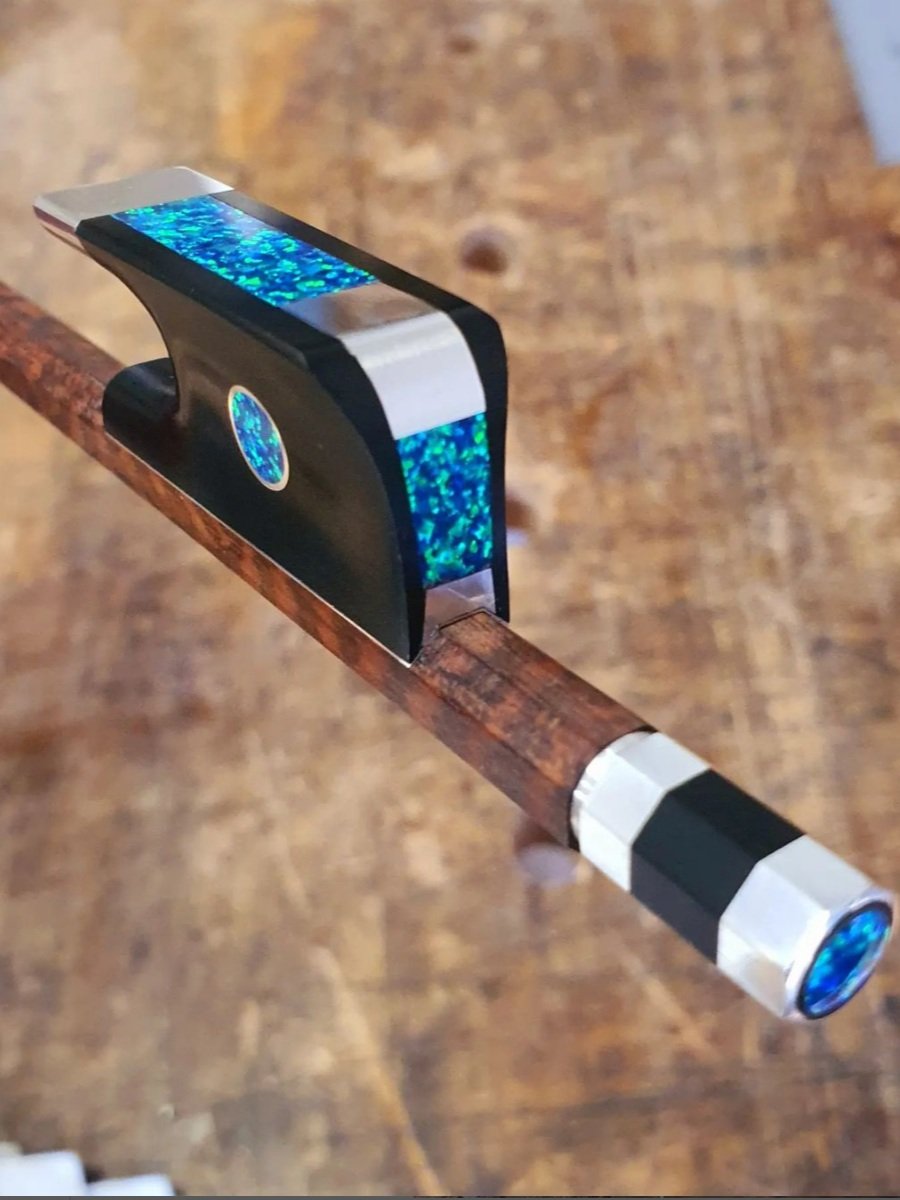From Tasmania to the World: ISB 2023
Georgia Sutton
Philip Smith is a master craftsman who has made his home and atelier in Tasmania, a remote and beautiful island state of Australia. For Philip, working in Tasmania has both its advantages and challenges. While the state's natural beauty and distinct cultural identity have inspired his craft, it's isolation and small population have presented unique obstacles to growing his business and reaching a wider audience. Despite these challenges, Philip has persevered, honing his craft and creating exquisite bows and instruments sought after by musicians and collectors worldwide. In this blog post, we'll explore Philip's journey as a bow maker in Tasmania and his upcoming exhibition at the International Society of Bassist Convention in the United States.
Living and working in Tasmania has been a double-edged sword for me as a maker.
On the one hand, Tasmania is a beautiful, remote part of Australia with a tight-knit community and a strong sense of identity, making it the perfect place to develop my craft. I came to Tasmania in the 1990s to study the Rabbath method for double bass with my mentor Michael Fortescue. After training as a luthier on the mainland, I returned in the early 2000s to grow my family and dedicate myself to becoming a master maker. I am a quiet man who, like many Tasmanians, is committed to the quiet pursuit of the extraordinary.
On the other hand, Tasmania's remoteness, small population, economic challenges, and complex attitudes toward cultural pursuits have sometimes made it difficult. For years, I've been met with puzzled looks from Tasmanians asking, "What's your real job?” or “How long are you staying?” but thanks to 20 years in Tasmania, I've built a solid reputation, a global clientele and created over 60 commissioned instruments - violins, violas, cellos, double basses, and bows - both modern and baroque.
Musicians play my instruments and bows across Australia, France, Germany, Austria, Switzerland, the USA, South America, and China. However, opportunities to engage face-to-face with international makers and players are rare in this island state and were made impossible by the pandemic.
I'm particularly excited about the upcoming International Society of Bassist Convention in Ann Arbor, Michigan, from June 5-10. This convention provides me with an excellent opportunity to showcase my work and connect with potential customers and collaborators from around the world. Currently, I'm working on a quiver of double bass bows that I'll be presenting at the convention. I can't wait to hear them being played and engage in endless discussions with professionals and peers about double basses and bow-making. This experience will not only be inspirational but also a balm to my bass-playing soul. I'm thrilled about the chance to showcase the bows I make here to be played around the world at ISB 2023.


